- Home
- Bryce Courtenay
Fishing for Stars Page 2
Fishing for Stars Read online
Page 2
I glance at my paunch. ‘I see, and their money isn’t tainted?’ My voice is still a semitone too sharp.
She ignores this. ‘I’ll call you in a couple of days, darling.’
‘Yeah, righto, I’ll look forward to that. Morning business or evening pleasure?’ I ask, a touch acerbic. While Marg calls me often enough from Sydney, her ‘Lovely to speak with you, darling!’ calls always come in the evening when she’s through with her daily lists and is feeling mellow after a regulation gin and tonic.
‘Bye, darling, love you!’ The phone clicks in my ear. Corroboree frog will be duly ticked off as business completed. It is something I had wanted to do anyway. When you mention that frogs are endangered, people are at best only vaguely concerned. Frogs are not a priority on the endangered species list, yet they are often the canary in the coal mine, one of the warnings that our environment is changing, usually for the worse.
Despite the humidity outside, I walk back onto the front verandah and flop into the cane chair; the view over Beautiful Bay never fails to calm me. It’s too early for a drink, although I’m almost tempted. That’s yet another thing that has changed: the level in the Scotch bottle seems to be dropping more quickly since Anna died.
I am becoming dismayed at my despondency, a mood that in truth has little or nothing to do with Marg’s call, but obviously has something to do with my recurring dream about killing Anna.
I’ve always been a loner, content with my own thoughts, but never moody or churlish. I’ve observed such weakness and self-indulgence in other men and thought less of them for it.
Now I know that if I should allow the small dark cloud of despair hovering above my head to envelope me, at the very least I will destroy this gorgeous day and be tempted to open the Scotch bottle far too early.
In an attempt to dispel my gloom I try to dismiss the Marg Hamilton of Japanese fishing licences and recall the stunning twenty-six-year-old WRAN in Naval Intelligence who stole my virginity in March 1942, a month after I’d turned eighteen.
By sailing Madam Butterfly, a twenty-nine-foot gaff-rigged cutter, across the Pacific from Java to Fremantle, I’d escaped the Japanese invasion with only hours to spare. It had been in Java that I’d first met Anna, the illegitimate daughter of a wealthy Dutch businessman and a Javanese woman who had died in childbirth.
Anna was my first love, a young girl so beautiful that my heart still pounds at the thought of her at sixteen.
Upon my arrival in Fremantle after a difficult and eventful month at sea, I was questioned by a Naval Intelligence team, which included Marg Hamilton. She took me home and joyously bedded me less than a month after Anna and I had said a tearful farewell, promising to be mutually faithful and to ‘wait’ for each other until we could consummate our love, however long that might take.
Alas, at eighteen, the one-eyed snake is king. Marg snapped her fingers and I was halfway through undoing my fly buttons before the snap had echoed round the room. She taught me everything a boy should know in the limited time we enjoyed before I left for Melbourne to join the navy. Whereas Anna made my heart pound each time she appeared, the WRAN with the beautiful breasts and long legs gave me a hard-on every time I looked at her. Duplicity had come early in my long life of loving these two women.
Later that year, on the 12th of December 1942 to be precise, while I was at Guadalcanal with the Americans fighting the Japs, Marg wrote to say she’d become engaged to a naval officer. In fact, to Commander Rob Rich who had been my commander at HMAS Cerberus, the naval training centre in Victoria I had attended as a recruit. While I’d been in the islands, Marg had been promoted and transferred from Fremantle to Melbourne, where she’d met him and fallen in love.
I recall feeling cheated, deeply hurt and sorry for myself. In fact Marg had always been very careful to point out while I’d been with her in Fremantle that the privilege of sharing her bed was subject to her approval and should always be regarded as temporary. She was eight years older than I was and she announced in her practical way that this was an emotional chasm too large for either of us to leap.
Nonetheless, battle-weary and suffering from malaria, I was shattered by the news of her impending marriage. I felt unloved and entirely on my own. My mother had died when I was five years old; my father, a missionary in New Britain, had declined to leave his flock and had almost certainly been captured by the Japanese and was probably dead. Anna had failed to arrive in Australia, so I told myself I had every right to assume she too was captured or dead. Now the only other person in the world I loved had jilted me.
The fact that Marg was perfectly at liberty to share her affections with whomsoever she wished and that, in turn, I had barely given a thought to my absolute vow of chastity to Anna on the first occasion I had been seduced by Marg never occurred to me at the time. I recall that months later, when eventually it did, I explained my infidelity and settled my conscience by a process of retrospective reasoning.
I’d seen Anna off at the quay in Batavia when she had escaped with her family on a merchant ship. But upon arriving in Fremantle I was to learn that the Japanese were sinking ships on the high seas whether they carried troops, civilians or refugees. So, I’d conveniently made myself believe that Anna had been a victim of such bombing, leaving me free to jump into bed with Marg. My logic, both belated and dodgy, was neat as a three-button suit.
In fact, when I met Anna in Melbourne five years after the war ended and once again fell head over heels in love with a very changed and emotionally damaged woman, I was to learn that her ship had broken down on the south coast of Java, where she’d become a prisoner of the Japanese, forced to spend the war as the consort of the Japanese commander of the region, or to put it more bluntly, as a comfort woman.
After leaving Marg in Fremantle, I had not been entirely faithful to her either. Shortly after I’d arrived in Melbourne to attend the officer training course at HMAS Cerberus, I had met a lovely little Irish Catholic redhead named Mary Kelly who, while assiduously preserving her virginity for her marriage bed, had been sweet enough to relieve me in other pleasant ways.
In my mind this meant that I had technically remained faithful to Marg Hamilton. So I was filled with righteous anger that the woman I loved was going to marry a naval officer with a desk job, while I, weak with malaria, was risking my life almost daily in bloody hand-to-hand combat with the enemy to keep her safe so that she could fornicate with anyone she fancied.
I had written to her every week while I’d been in the islands with the marines, and while her own letters never promised fidelity or suggested a shared future, I nevertheless had taken it for granted that she would be waiting for me, that I had matured sufficiently to jump the emotional chasm.
The dreaded letter telling me the bad news had crossed one of my own telling her I was being repatriated from Guadalcanal; that the umpteenth dose of malaria had finally done me in; that I was to be sent to a military hospital in Victoria.
I had lain naked in my tent under a mosquito net, drowning in my own sweat, teeth chattering, shivering from the fever raging through my body, imagining my homecoming. Boy soldier, broken by malaria, returns home a hero to claim his faithful love. She sits tearfully at his bedside holding his hand in the military hospital. When he finally recovers they walk together into the sunset. In my fevered imagination I could practically hear the violins in the background.
Commander Robert Rich, Marg’s husband, was and always had been a great bloke. He subsequently welcomed me as a friend, and in the twenty years that followed he rose to the rank of admiral. Pretty bright in his own right, with the added advantage of Marg – a charge of dynamite in his life – there was no stopping his climb up the ladder. Together they raised two intelligent and thoroughly delightful children, John and Samantha, and appeared to be very happy. Alas, he was killed in a freak accident in 1965. While on a routine inspection at the Cockatoo Island Dockyards in Sydney, he was hit by a steel beam that fell from a crane.
In
the five years that followed, Marg grew weary of tea and sympathy, garden parties and official dinners, which she attended alone wearing her husband’s medals. While she’d enjoyed being the admiral’s wife and raising a family, she’d been a captive of her husband’s career. Now she found herself trapped in her new role as the admiral’s widow, expected by the naval establishment to do good works within the navy family.
Marg is a woman with the energy of a buzz-saw and she was slowly rusting away in a corner of the work shed. At fifty-four she was a highly articulate and still extremely attractive woman who craved a new start, longing to walk out of the shadows cast by her former life. Finally, fed up to the teeth with fetes and charity functions, she resumed her maiden name and went to live in Tasmania.
She joined the Australian Conservation Foundation and she became actively involved in the rolling battles to save the Tasmanian wilderness. She was among the first members of the United Tasmania Group, the world’s first green political party, which was formed in 1972. This led eventually to membership of the Tasmanian Wilderness Society, where the Tasmanian Greens were born as a political party and ultimately to her election as a member of the Tasmanian Legislative Council.
Marg knew how to get things done, and quickly became a bloody nuisance in Hobart and as a lobbyist in Canberra where both Labor and the Coalition thought her political party at best temporary and at worst a bad joke.
Always the closest of friends, she and I returned to a somewhat peripatetic though more intimate association after she went to Tasmania. I’d visit her in Hobart or Canberra when I was in Australia or she’d visit me at Beautiful Bay. It seemed I had finally managed to jump the emotional chasm.
When she retired from the Tasmanian Legislative Council in 1985 she returned to live in Sydney. By that time she’d earned the sobriquet ‘Madam Termite’, for her ability to undermine the halls of conservatism and complacency that seemed particularly common in Tasmania, especially the Tasmania Club, which she regarded as the greatest single assembly of silly old farts in the land.
Now, at the age of seventy-seven with all her marbles very much intact, she’s the Martin Luther King of climate change, preaching the hot gospel of global warming and the cold logic of melting icecaps. She’s the old woman and the sea, relentless defender and spokesperson for all creatures great and small, those that swim, fly, run, crawl, slither, hop, burrow or simply exist.
When Marg began her crusade she lived in a lonely world where most politicians thought of her kind as tree-hugging ratbags. She and they have come a long way, but not without suffering the slings and arrows of the environment sceptics. Last year she was invited as a non-representative speaker to the Earth Summit, the United Nations Conference on Environment and Development in Rio de Janeiro and the very first conference to be held on the subject of environment and sustainable development. Her talk followed that of British explorer Robert Swan, the first man to walk to both Poles, who warned the world that the Arctic and Antarctic were showing alarming signs of change and drew attention to the size of the hole in the ozone layer over the Arctic. Her podium-thumping talk caused several representatives from the larger nations to walk out and the remainder to give her a standing ovation.
Marg completed her speech by saying: ‘As the twentieth century totters to a close, one despotic oil-producing Arab nation has attacked another equally deficient in human rights. The organisation sponsoring this conference went to the defence of one of them in order to protect the flow of oil from the Middle East.
‘Despite the pious rhetoric, this was the cynical protection of a cheap source of the material appropriately named “crude” that is destroying our planet. The road to Basra is not only littered with Iraqi dead but also with the hastily forsaken principles of nations whose politicians claim to care. This self-serving rescue mission is a clear indication of what the so-called forces for good will do to protect their right to continue to pollute the world in the name of progress.
‘It is time to reclaim a world once beautiful but now slowly dying as we stand by and let these internal combustion bullies have their way with our planet. May they burn in a hellfire fuelled by an everlasting oil well!
‘Green is a silent force; it is not a nation, it is you and it is me. It is every individual who loves and cares about the future of our planet. Our only weapons are our voices, but we will be heard! You cannot destroy, in the name of human progress, what God provided as necessary for all life on earth.
‘Thank you.’
I don’t suppose that anything Marg said was new or hadn’t been said by others. But the passion with which this seventy-six-year-old woman stated her convictions carried the audience. A minister in the federal Labor government brandishing a copy of the Sydney Morning Herald containing her speech called it a disgraceful diatribe by an ageing ex-Greens agitator who in her day was known to be a mischief-maker. To the general mirth of the House, a member of the Queensland National Party brought it up in Question Time, where he referred to Marg’s speech as a direct attack on democratic rule and a threat to the ANZUS Treaty.
If I am beginning to sound like a fellow traveller, then I must confess that my conversion, like that of so many others, is only very recent. Anna’s world had no time for the climate debate and, to be fair, I gave the subject almost no thought until the advent of the Earth Summit.
I guess we were all simply too busy kicking and clawing our way up the ladder to question our ambition or the morality of our actions. We may never have used a phrase such as ‘Greed is good’, but we also never questioned our right to have what we wanted, whatever the cost. While I loved Marg Hamilton, I thought her views a bit far-fetched at times, in fact most of the time, while Anna simply dismissed her as a raving fucking fanatic.
I guess I’d always accepted that humans are by nature greedy and that altruism is rare in our species; enough is never enough and we cannot be too rich. Or, as Anna would say with an impatient sigh, or a naughty giggle, ‘Nicholas, if I don’t, someone else will.’
If Marg saw the Iraq–Kuwait war as a disaster, Anna had very different views. In the early stages of her cancer, when she wasn’t so ill from the chemotherapy, she and I watched the bombing and the carnage on the road to Basra as American aircraft bombed the retreating Iraqi soldiers. I recall her saying with a shrug, ‘Well, at least it is good for my oil shares.’
‘Isn’t it rather a risky time to be investing in oil?’ I suggested. While she never consulted me on money matters, and often dealt in big numbers, I was shocked when she told me the size of this particular transaction – a million dollars US.
‘No, the price of oil was bound to go up,’ she said calmly.
‘Was it worth risking so much?’ I asked.
‘Nicholas, I was lucky to get them in the scramble to buy on the New York and London stock exchanges.’
‘But surely the greater the price of raw material, of crude, the less profit to the buyer?’
Anna laughed. ‘Not with oil; without it the world would grind to a halt.’
Anna loved explaining the intricacies of a financial system that had made her perhaps the richest woman in the southern hemisphere. ‘They buy the crude from the supplier country and then add a percentage, predicated on all the costs they incur right up to the moment you use the bowsers, and with a good solid profit margin included.’
‘Sure, that’s what we all do. I do in the shipping business. What’s wrong with that?’
‘Nothing, but you don’t own the docks, the cranes, the passengers or the freight you carry, the terminal at your destination, the transport to the retailers or the retail outlet itself, as the oil companies do.’
‘They own everything? I’ve never thought of it like that.’
‘Yup, the entire distribution system, the six or seven stages it takes to go from a barrel of crude to the petrol pump, and each of these stages is a separate profit centre.’
‘You mean they’ve already made a profit on the first stage, buying the
crude and adding their mark-up, then they add an additional profit at each stage? Seven stages, seven additional profits . . . Wow!’
She grinned. ‘Nicholas, you’re improving. I’ll make a financier out of you yet.’
‘But that’s double dipping, it’s cheating the customer!’ I exclaimed.
‘Cheating? If it is, it’s legitimate cheating. It’s capitalism and the joy of profit centres.’ Anna sighed heavily. ‘Nicholas, whatever is going to happen when I’m gone? These days you’re sounding more and more like the Green Bitch.’
‘Steady on, darling. I won’t have you calling Marg that!’ I reproached her.
Anna sniffed, ignoring my reprimand. Faced with a possibly terminal illness, she didn’t give a shit and the gloves were off between the two women. She openly called Marg the ‘Green Bitch’ and Marg in turn referred to her as ‘Princess Plunder’. I knew there wasn’t going to be any reconciliation.
‘Nicholas, if I’m not here when the price of oil drops below twenty dollars a barrel, you must sell immediately,’ Anna instructed me.
I recall laughing and protesting, ‘Darling, I’m in the shipping business. If it doesn’t drop soon the company will probably go broke – diesel fuel is our greatest expense.’
‘Try to understand, the higher the price of a barrel of crude the greater the profit to the oil companies.’
Anna pointed to the screen, where as far as the camera eye could see, thousands of mangled trucks and piles of ordnance lay scattered along the road to Basra. The dead lay sprawled in their thousands in the fierce Arabian desert sun, many roasted and blackened, or grotesquely welded together in the back of still smouldering Iraqi army trucks. ‘This little war is eventually going to make me a lot of money, Nicholas,’ Anna asserted. She’d seen too much death and destruction in her life to take much notice of what was happening on the television screen.

 The Potato Factory
The Potato Factory The Power of One
The Power of One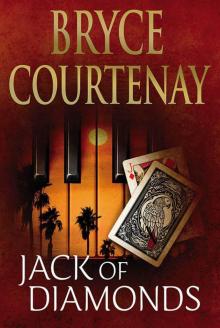 Jack of Diamonds
Jack of Diamonds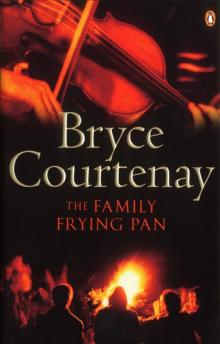 The Family Frying Pan
The Family Frying Pan April Fool's Day
April Fool's Day Smoky Joe's Cafe
Smoky Joe's Cafe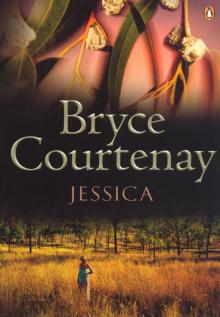 Jessica
Jessica Matthew Flinders' Cat
Matthew Flinders' Cat Potato Factory
Potato Factory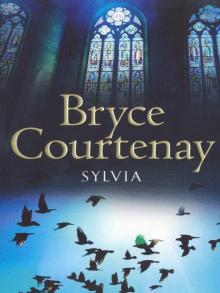 Sylvia
Sylvia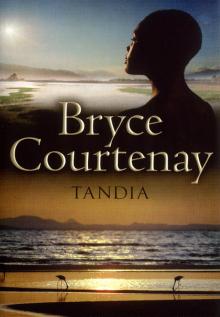 Tandia
Tandia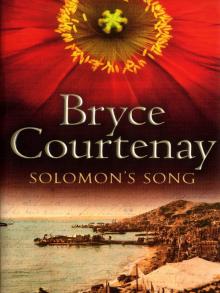 Solomon's Song
Solomon's Song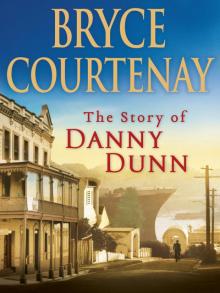 The Story of Danny Dunn
The Story of Danny Dunn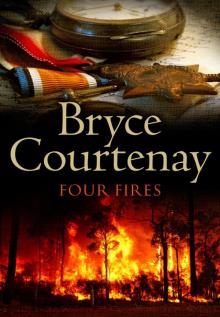 Four Fires
Four Fires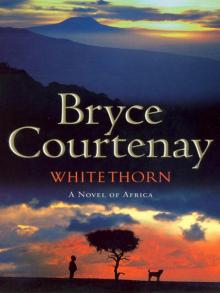 Whitethorn
Whitethorn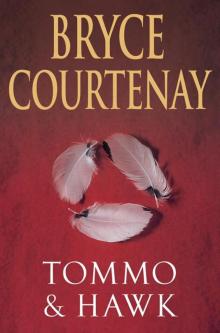 Tommo and Hawk
Tommo and Hawk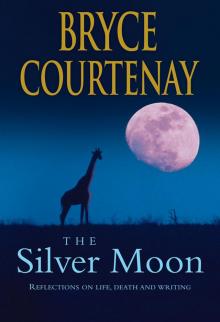 The Silver Moon
The Silver Moon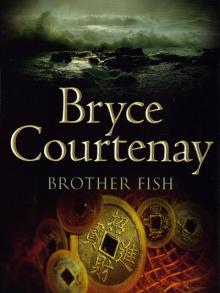 Brother Fish
Brother Fish FORTUNE COOKIE
FORTUNE COOKIE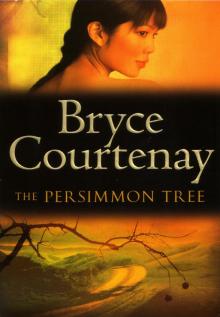 The Persimmon Tree
The Persimmon Tree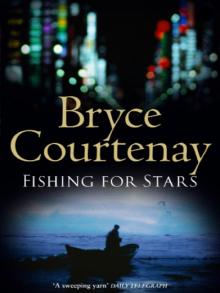 Fishing for Stars
Fishing for Stars